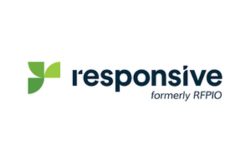here have been many moments in Lawrence Jones’ life that have not only shaped the entrepreneur he is today, but have made UKFast, the internet hosting firm he founded in 1999, a competitive player in the current technology sector.
One such moment, the 46-year-old tells me, is watching his mum’s credit cards being cut up at a supermarket when he was a child.
Though he was only six years old, that was a day he would never forget.
“I remember my mum had to walk away from the trolley after this horrible woman had embarrassed her and I just thought at the time, ‘that will never happen to me or my family,’” he says.
The incident has been one of the driving factors to his success, and to today, Jones is chief executive of the internet hosting firm UKFast, which he launched with wife Gail 17 years ago.
He has grown the business from a two-person operation to one that employs 260 staff and is still expanding, at its snazzy headquarters on the edge of Manchester’s Technology Park.
The firm currently provides managed hosting, cloud services and colocation to government, public sector and commercial organisations, with a wide-ranging product portfolio.
In 2013, the firm, which also owns four data centres, launched its eCloud service, which includes a comprehensive range of cloud solutions in the UK – from drag-and-drop storage and OpenStack development space, to complex bespoke hybrid and private solutions.
Built in-house, the eCloud model has surpassed all expectations at the firm, with cloud services now netting £9.9m a year.
The figure represents 27% of total annual recurring revenue, which is on target to hit £37.2m this year.
“UKFast is a huge melting pot of technology and clients can come in and tap into any element of that at any level,” says father-of-three Jones.
“We have gone from selling single servers to customers wanting websites, to selling solutions to government organisations, the NHS, huge corporations to web developers, IT consultants, and retailers. We have a massive spectrum of clients from five people in an office to 20,000.”
While UKFast continues to expand, Jones didn’t always plan to build a business in the technology sector, but had started his career in the music industry having launched his first business, Music Design Company, aged only 18.
“I wanted to make my mark in the world and I thought the easiest way would be to write music and get a band together,” he says.
“While I came close to doing that on a number of occasions, what I realised was that it was always going to be a make or break situation. I had a lot of friends in the music industry, some of whom made it, but I found there was no difference between those people and the ones who never made it.
“I spent 10 years in the music industry building and recording studios, managing a few Manchester bands and putting tours together up and down the country.
“At the end of it, I was left with two choices, to either continue with it or look for something else. But out of the blue, Granada came along and bought that business. However, most of my bread and butter came from a separate arm to the business, which was supplying grand pianos to venues. That became so successful, that I even started importing pianos from Korea.
“I worked with Granada for a year and what I found interesting was the money from the grand piano business was still trickling through, and I realised that what I needed next was a recurring business model. It was safe, it suited me and it was about long term investment.”
So Jones took himself off to New York where he looked for inspiration, and that’s where he came across the idea of launching an internet business.
At the time, he thought about setting up a website to rent space to artists calledGallery.com, which Jones admits was “a terrible idea because artists at the time would never have used the internet or had any money”.
He says: “It could work now, but it was ahead of its time.”
By this point, Jones had returned to the UK, and while trying to set up Gallery.com, he found hosting companies difficult to deal with.
“They were big American corporations that just had no care whatsoever and simply wanted to make their money. There was no customer service and it was very techy led,” he says.
“I had spent all my life providing a great service and I saw an opportunity for creating a web hosting firm and offering that service out to people who wanted a website and that’s what we did.
We were six months into the business when the internet boom happened, and because we were so small at the time, we missed the boom, but at the same token, when the bubble burst we were unaffected by that for the same reason. We simply ploughed on.”
Launching a new business comes with many challenges, as Jones found.
With no marketing budget, it was a case of going through the Yellow Pages and ringing potential customers.
One of the first things Jones did was to get an office at a business centre just off Fountain Street, giving the impression that UKFast was a much larger business.
“They would answer our telephone calls – and that was important as it gave us the right image,” Jones laughs.
In the first year, his aim was to get 100 new customers, a milestone he achieved early on.
He says: “I still have customers that I won back in those days, who are very loyal.
“I remember my first customer – she didn’t last that long, but you learn lessons when you’re a small company and you may say yes to too many things, and sometimes people take advantage of you, but there are people out there who are really supportive.
“We grew quickly, I even started putting adverts on the back of internet magazines. They were very small ones but they got bigger and bigger and pretty soon we were growing more than our suppliers.
“I soon realised to grow further and have much tighter control on our costs, we needed get closer to our food chain. We needed to own and operate all the controlling parts of what we did.”
UKFast then went about building its own network and eventually its own data centres.
“One of the rationales behind UKFast is to take your biggest cost and utilise it,” says the entrepreneur. “For example, we were hosting with Telecity many years ago and when they put up their prices, we moved 11,000 servers out of Telecity and built our own data centre, and saved millions.”
But then came another ‘moment’ in his life that changed the way Jones did business.
In 2005, when one of his competitors’ phone lines went down, UKFast sent out a cheeky press release informing customers about the situation with the provider’s phone difficulties.
“It wasn’t meant to go out,” says Jones. “The then managing director of this company rang me and I apologised. He belittled us a bit in this conversation. But I deserved it and I took it on the chin and listened to his comments.
“His criticism was that he had seen the website, he had seen the prices and told me that we didn’t even compete.
“Now I knew we competed because we were winning lots of business. But, essentially, it was one of those life changing moments where a competitor gave me insight into what we were doing wrong.
“The website was doing everything it needed to, but by having the prices on there, people would look at it and make their decision instantly. By taking the prices off, people had to ring us, we were able to engage with them.
“In our business, you need to talk to people. It’s about building a relationship with a customer, so you need to get involved in a conversation and our website was stopping people from doing that.
“Within five minutes we got all our pricing off the website and it changed the way we looked and felt.
“What followed was that the phones started ringing and we have never looked back.”
As the business expanded, so did the UKFast premises. In June 2008, the firm moved to Piccadilly Towers with only 28 staff.
The office was so huge, staff would often play football in the large space during breaks and Jones even moved his dining table into the boardroom.
But Jones was a firm believer that the space would be eventually filled – and it was.
As staff numbers approached 100, it prompted another move to an even larger space at its current facility off Princess Park Way. The UKFast Campus is 40,000 sq ft and Jones acquired it for more than £3m.
“It was another brave decision,” says Jones. “The staff were convinced. I painted a picture of what it would look like and I’m very lucky that UKFast has built up people who genuinely believe in the whole idea of what we are trying to create here.
“We didn’t lose anybody with the move and over time we will grow here too.”
Jones, who launched a London site last year, has kitted out its offices with a giant chessboard, bar and recording studio, where its staff can have a break and create music.
Its office space also boasts a den where employees can have naps for half an hour. During Christmas, the car park was converted into an ice rink where workers had the opportunity to skate with their friends and family. Jones also invited live bands and DJs from the Ministry of Sound to perform on site.
“Our office is fun from the moment you walk in,” says Jones, who now plans to build dog kennels so staff can bring their pets to work.
“I believe a fun working environment makes a much more productive team – and I trust my staff to get the job done whilst having fun at the same time.”
He adds: “The campus has changed the image of the company.
“We’re a national business, most of our customers are down south but by being here, it has enabled us to let Manchester know that it has a huge cloud provider on its doorstep. One that was made in Manchester.”
2016 is an exciting year for Jones as he expands the business into new territories. As well as developing its cyber security service to customers, Jones has this month launched a recruitment firm, Mysort.co.uk.









